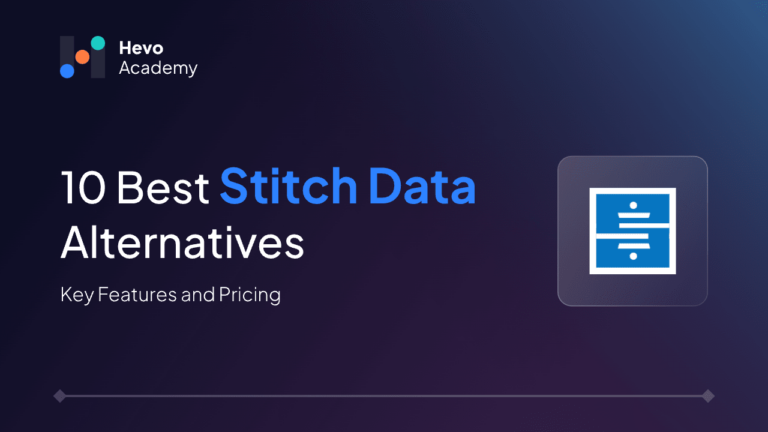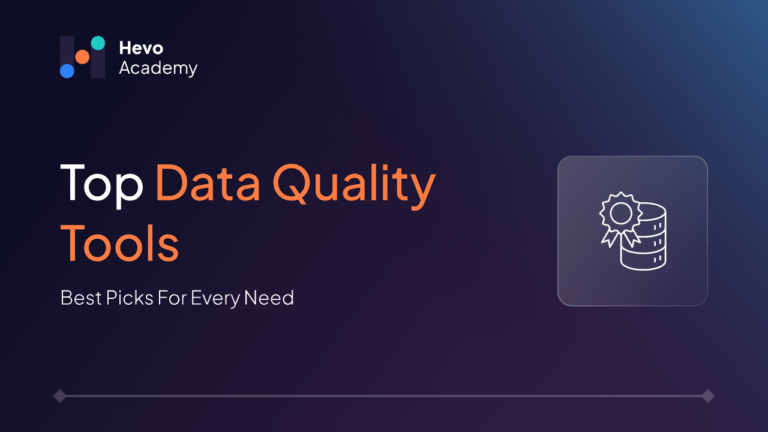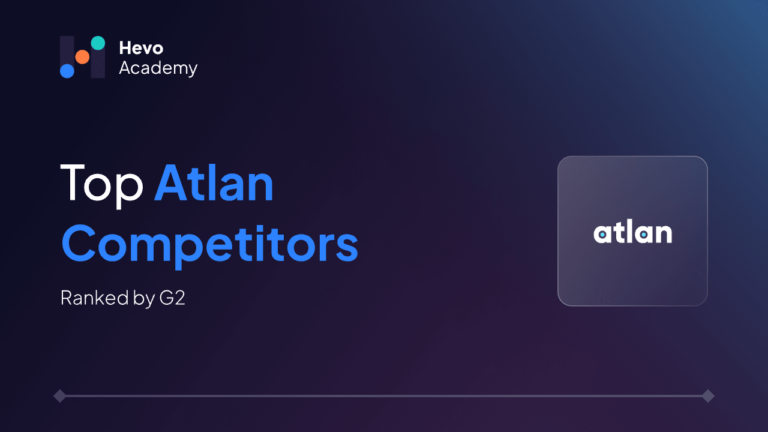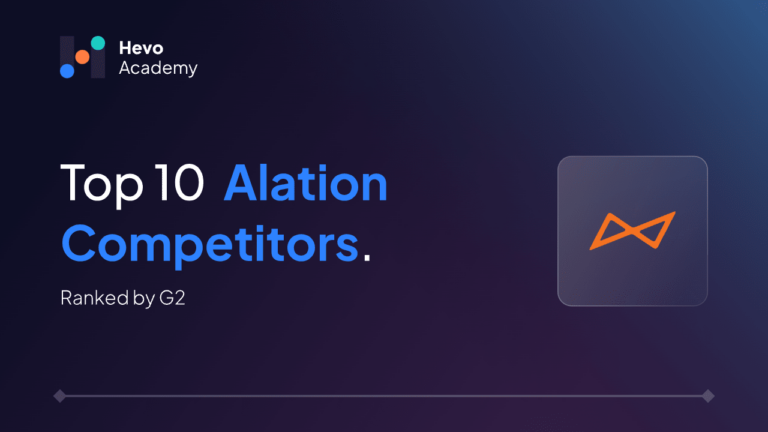Stitch has become the go-to for businesses looking for a quick and straight way to pull data into one place from multiple sources. In addition, it is easy to set up, cloud-based, and does the basics quite well. Depending on particular factors such as unique data needs, budget, or required functionalities, some organizations explore alternative solutions to meet their goals better. In this article, I will give you a review of the top Stitch Data alternatives and what makes each one of these a good fit.
Table of Contents
What Stitch Data Brings to the Table?
Stitch Data is a straightforward ETL tool that makes pulling data from different sources simple and hassle-free. It’s built for teams who want to set up data pipelines without needing tons of engineering work. Because it’s fully cloud-based, Stitch makes it easy for companies to bring data into one place quickly.
Here’s what Stitch brings to the table:
- Lots of Connectors: Stitch supports over 130 different sources, so you can pull data from all the apps and databases you use without a fuss.
- No-Code Setup: With Stitch’s user-friendly interface, anyone on the team can set up data pipelines—no coding skills required. It’s great for teams that don’t want to spend extra time on complex configurations.
- Built to Scale: As your business grows, Stitch can handle increasing data loads, so you won’t outgrow it anytime soon.
- Flexible Pricing: Stitch uses a pay-as-you-go model, so you only pay for the amount of data you process each month. This makes it easy to manage costs, especially for startups or teams with growing data needs.
Reasons Businesses Are Seeking Alternatives to Stitch
1. Limited Customization:
Although Stitch is pretty easy to use, some people claim that Stitch does not enable enough customization options. Your team may want particular adjustments with your data and workflows, so you may really want more flexibility. That is why there is a need for stitch data alternatives.
2. Rising Costs:
As companies grow bigger and their requirements for data increase, Stitch’s pay-as-you-go pricing starts to be expensive. Companies generally like options with more predictable pricing to make it easier to manage costs while scaling.
3. Performance Slowdowns:
The same users have reported that Stitch tends to bog down with very large data sets or even more complex tasks. For organizations that require real-time data processing, this could be a deal-breaker.
4. Integration Limitations:
While Stitch supports a wide range of data sources, it does not support them all. If your organization uses specific apps that Stitch does not connect to, you may find yourself looking for tools that can provide more integration options.
5. Transformation Issues:
Stitch integrates with DBT for its data transformations, but some teams want that capability out of the box. If you are the kind of person who likes to see everything under one roof, then you might feel Stitch lacks at that point.
6. Concerns with Support:
Some users reported that customer support and documentation were inconsistent. It can get frustrating when you have problems or seeking advice, and you do not get a satisfactory response.
7. Strategy changes in data:
Companies and businesses and their respective data strategies change over time. In some cases, real-time analytics might be the focus, or perhaps more complicated data workflows will be needed. Stitch might not fit into these emerging objectives, which could lead a team to find another tool that suits them better.
Top 10 Stich Data Alternatives
1. Fivetran
Fivetran is an incredibly powerful ETL tool with one important goal in mind: to make data integration completely effortless. It will automatically pull data from a variety of sources into your warehouse and handle everything in the background so that you can focus your resources and time on analysis, not maintenance.
Key Features:
- Automated zero-maintenance data integration
- 500+ data source and destination connectors
- Automatic schema detection and dynamic schema changes
- Allows in-destination transformations
Pricing:
Fivetran pricing allows you to pay for monthly active rows (MAR), which are unique primary keys that have been added, deleted, or updated.
2. Hevo
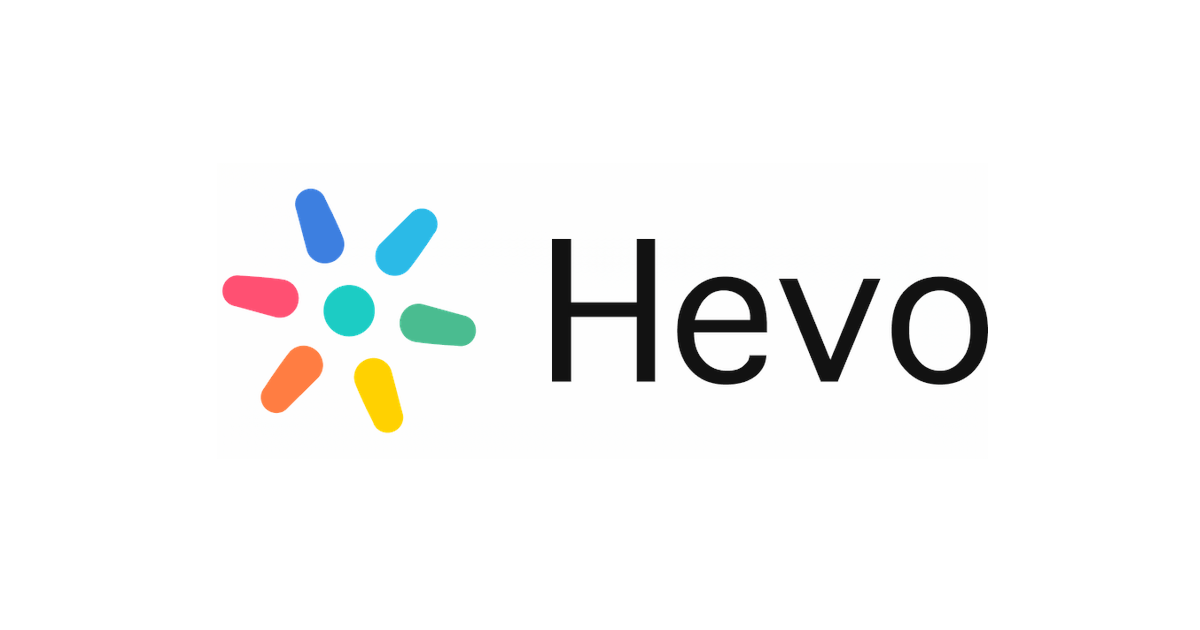
Hevo is a no-code, zero-maintenance platform designed for seamless data integration. It allows companies to replicate data in real-time and provides a very user-friendly interface; this means even non-technical team members can work with it easily.
Key Features:
- Facilitates a no-code experience, making it easy for non-technical users to set up the pipeline.
- It provides an automatic schema mapping facility, leading to reduced manual maintenance.
- Drag and drop, as well as Python code-based transformations, are available.
- Supports over 150+ connectors for pipeline integration.
Pricing:
The Hevo pricing plan offers a free plan for up to 1 million monthly events, with paid plans starting at $239.
3. Airbyte
Airbyte is one of the few open-source options allowing users to extend data connectors. It operates both in batch and real-time data synchronization so that it can be very flexible for a wide range of data integration needs.
Key Features:
- 400+ pre-built connectors available for a wide range of integrations
- Fully managed and optimized for cloud scalability.
- Compatible with Kubernetes, Airflow, Prefect, Dagster, and DBT.
- Simplifies AI workflows by loading unstructured data directly into popular vector store destinations.
Pricing:
Free for the open-source model, but Airbyte Cloud starts at $10/month. Airbyte Cloud is usage-based, so you only pay for what you sync.
4. Skyvia
Skyvia offers ETL and ELT processes in a user-friendly drag-and-drop interface. So, working with data integration is ideal without getting into detailed coding hassles, making it one of the most popular options among SMBs.
Key Features:
- Supports 190+ data sources.
- Automation tools for scheduling and managing data workflows
- Includes detailed logging and alerting mechanisms.
- Provides an easy-to-use ELT solution for cloud data replication.
Pricing:
Skyvia pricing starts with a free plan, while paid plans are charged at a base price of $79 per month.
5. Integrate.io
Integrate.io is an excellent ETL solution that combines the ease of use of a user-friendly visual data pipeline builder with strong data transformation functions. It is an excellent choice for those businesses that want to handle complicated workflows.
Key Features:
- It offers 200+ connectors for data integration.
- Manages all the future changes automatically with change data capture.
- It connects to on-premise, legacy systems to have all systems and software in sync.
- A global support team is available for 24/7 services.
Pricing:
Integrate.io pricing offers services at $2.99 per credit in the starter plan, given there are 500 credits.
6. Matillion
Matillion is specifically designed for cloud data warehouses like Snowflake, Redshift, and BigQuery. It provides a graphical user interface to develop ETL pipelines, making preparation of your data for analysis easier.
Key Features:
- Live feedback, validation, and data previews inside the application are available.
- An easy-to-use user interface and basic functions are available.
- It facilitates in-client support.
- Enterprise features such as generated documentation.
Pricing:
Matillion’s basic plan starts at $2.00 per credit with 500 monthly credits.
7. Talend
Talend offers open-source and enterprise solutions for data integration. It contains data quality and governance features, thus giving it a broader appeal for large organizations that require an advanced data management system.
Key Features:
- Offers 1000+ connectors for data integration.
- It offers built-in data lineage and audit tracking.
- Optimized for big data and can integrate with distributed computing frameworks.
- Supports features like multi-threaded execution and parallel processing
Pricing:
Talend pricing is very specific to the particular needs of the organization in especially its enterprise version.
8. Informatica PowerCenter
Informatica PowerCenter has maintained a reputation for being one of the best in data integration, especially in handling complex workflows. Alongside that, it packs a set of tools for data quality and governance, making it a favorite among large enterprises.
Key Features:
- Features available for data quality management.
- Supports real-time and batch processing.
- Offers a robust workflow management engine.
- Allows for parallel processing, data partitioning, and pushdown optimization
Pricing:
Informatica’s pricing has to do with actual usage and organizational needs. Informatica Pricing Units(IPUs) give customers access to all eligible cloud services listed in the Cloud and Product Description Schedule.
9. AWS Glue
AWS Glue is a fully managed ETL service that sits on AWS. It automatically scales resources to match your data needs, making it an excellent fit for businesses already inside the AWS ecosystem.
Key Features:
- Serverless architecture with auto-scaling.
- Supports interactive application development.
- Includes a data catalog.
- Allows for the creation of efficient data queries and transformations.
Pricing:
AWS Glue is a pay-as-you-go service. Users only pay for the data they process and the resources they utilize.
10. Dataddo
Dataddo is a light cloud-based data integration tool. It has a very simple and intuitive interface that really makes integrating data from several sources into one place easy. It is suitable for a small team searching for an inexpensive solution.
Key Features:
- It accommodates 300+ connectors, including universal connectors.
- Supports reverse ETL.
- It is a SOC 2 Type II certified platform.
- Supports multi-account extraction, enabling users to connect and extract data from multiple accounts
Pricing:
The Dataddo pricing plan offers a free plan and paid plans starting at $99 per month.
Summing it up
Choosing the right solution means understanding your data needs, evaluating technical requirements, considering budget constraints, and testing options. This approach helps you find a replacement that meets current demands and supports future growth. While research and testing take time, the right fit will empower your data strategy and drive informed decisions.
Ultimately, selecting a Stitch Data alternative is about finding a tool that aligns with your team’s workflow, scales with your data needs, and integrates smoothly into your existing tech stack. Prioritize options that offer ease of use, reliable data pipelines, and strong customer support to minimize downtime and maintain data accuracy. With the right solution in place, you’ll be better equipped to streamline data processes, enhance data insights, and confidently make impactful decisions.
Sign Up for Hevo’s 14-day free trial and experience the feature-rich Hevo suite firsthand.
FAQs
1. Who owns Stitch Data?
Talend, a global data integration and management company, owns Stitch Data. Stitch was acquired by Talend in 2018.
2. Is Stitch an ETL platform?
Yes, Stitch is an ETL platform designed to extract, transform, and load data from various sources into data warehouses for analysis.
3. Is Stitch data free?
Stitch Data offers a free trial, but it’s not entirely free. Stitch operates on a tiered pricing model with a limited free tier for small volumes of data.

